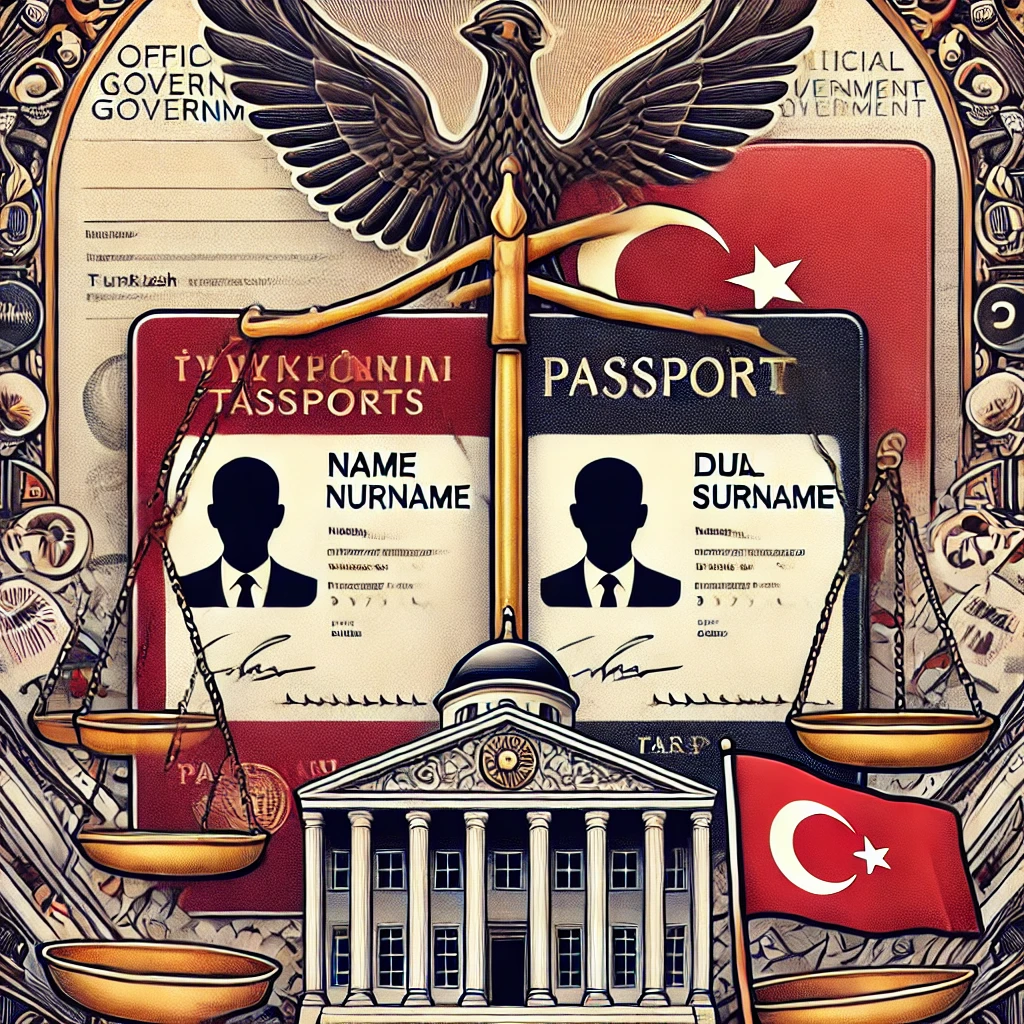Introduction
Dual citizens in Turkey often encounter challenges concerning their names and surnames, as naming conventions differ across legal systems. These issues arise during the registration of civil events, such as birth, marriage, divorce, and passport issuance, leading to discrepancies between the names recognized in Turkey and those used abroad. This article explores the legal framework governing names in Turkey, the conflicts faced by dual citizens, and potential solutions within the context of Turkish law.
Legal Framework for Names and Surnames in Turkey
- Turkish Civil Code (Law No. 4721)
- Under Turkish law, individuals must bear both a first name and a surname, with surnames typically inherited from the father in line with the patriarchal family structure.
- Surname Law No. 2525 mandates that citizens use Turkish characters and prohibits names with meanings deemed inappropriate by authorities.
- International Naming Discrepancies
- Dual citizens may carry names or naming patterns that do not align with Turkish legal requirements. For instance, some foreign jurisdictions allow multiple surnames or matronymic surnames, which Turkish systems may not recognize.
- Gender and Alphabet Restrictions
- Turkey enforces strict alphabet limitations, only permitting characters in the Turkish alphabet. For example, names containing letters like “W,” “Q,” or “X” (common in foreign names) may face rejection during official registration.
Issues Faced by Dual Citizens
- Name Inconsistencies across Documents
- Dual citizens often encounter issues when their names appear differently in Turkish and foreign documents. For instance, a person may have a hyphenated surname in a foreign passport, while the Turkish system registers only part of the surname, leading to inconsistencies in legal and travel documents.
- Problems with Civil Registration and Marriage Records
- Dual citizens may face challenges when marrying or divorcing in Turkey if their names or surnames do not align with Turkish naming standards. These discrepancies can delay the registration of marriages or divorces or result in rejections by civil registries.
- Inheritance and Property Ownership Issues
- Name mismatches between Turkish and foreign records can complicate inheritance claims or property ownership, as the legal system may require consistency in the identification of individuals across jurisdictions.
- Passport and Citizenship Applications
- When applying for or renewing Turkish passports, dual citizens may be required to use the names registered in Turkey, creating issues if the name differs from the one in the foreign passport. This can result in travel disruptions and challenges when proving identity abroad.
Legal Solutions and Strategies
- Name Correction and Harmonization Procedures
- Turkish law allows for name correction applications through civil courts. Dual citizens can request that their Turkish name records be amended to match their foreign names, provided the changes align with Turkish legal standards.
- Recognition of Foreign Name Patterns
- Dual citizens can apply for additional name registration in Turkish records by presenting valid foreign documents. Turkish courts may accept such requests, especially if the foreign name is legally recognized in another jurisdiction.
- International Treaties and Cooperation
- Turkey cooperates with other countries through bilateral agreements and private international law mechanisms to manage conflicts arising from name differences, particularly in matters of marriage, divorce, and inheritance.
- Use of Apostille and Notarized Documents
- Dual citizens are often advised to use apostille-certified or notarized translations of their foreign documents to ensure consistency across Turkish and foreign legal records.
Conclusion
Name and surname discrepancies present a unique legal challenge for dual citizens in Turkey, reflecting the complexity of managing identities across different legal systems. While Turkish law provides mechanisms for name correction and harmonization, the strict naming rules and bureaucratic processes can still create difficulties. Dual citizens should engage with legal counsel to navigate these challenges effectively, ensuring their identities are recognized consistently in both Turkish and foreign jurisdictions.

Yanıt yok